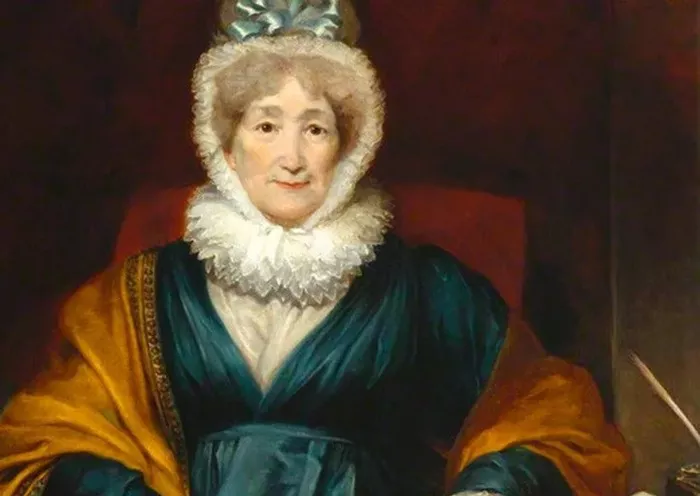Hannah More, an 18th Century British poet, playwright, and social reformer, was a pivotal figure in the literary and cultural landscape of her time. Her works, deeply rooted in moral philosophy and religious conviction, reflect her commitment to social justice, education, and the advancement of British poetry. Though she is often remembered for her essays and philanthropic efforts, her poetry remains a significant part of her literary legacy. As a British poet, More contributed to the moral and didactic trends in British poetry, using her verse as a tool for social change and spiritual reflection. This article explores More’s poetic contributions, her influence on 18th-century literature, and her broader role in the cultural reform movements of the period.
Early Life and Education
Hannah More was born on February 2, 1745, in Stapleton, near Bristol, England. Raised in a family that valued education, she benefited from a strong intellectual foundation. Her father, Jacob More, was a schoolmaster, and he ensured that his daughters received an education that was rare for women of their time. Encouraged in her literary pursuits from an early age, More displayed an exceptional talent for writing and poetry. By her early twenties, she had already composed plays and poems that captured the attention of literary circles in England.
Hannah More’s Poetry: Style and Themes
As an 18th Century British poet, More’s poetic works reflected the dominant literary trends of the era, including neoclassicism, moral didacticism, and religious devotion. Her poetry often conveyed strong ethical messages, aligning with her lifelong dedication to social reform. Unlike many of her contemporaries who focused on romantic or personal themes, More’s poetry emphasized moral instruction, religious piety, and the responsibilities of the individual in society.
Moral Didacticism
One of the defining features of More’s poetry is its didactic nature. She believed in literature as a means of moral instruction and used her poetry to advocate for virtues such as humility, charity, and perseverance. Her poem “Slavery” (1788) is one of her most notable works, in which she condemned the inhumane treatment of enslaved people and aligned herself with the abolitionist movement. Through vivid imagery and emotional appeal, More called upon her readers to recognize the suffering of the oppressed and to take action against the injustice of slavery.
Religious and Spiritual Influence
As a deeply religious individual, More’s poetry frequently explored themes of faith, divine justice, and the transient nature of earthly pleasures. Her verse often contained reflections on Christian virtues, urging readers to live righteous lives. Her collection “Sacred Dramas” (1782), written in poetic form, was particularly influential in promoting Christian teachings through literature. By blending poetry with biblical themes, More reinforced the role of British poetry as a medium for spiritual enlightenment.
Advocacy for Women’s Education and Morality
More was an ardent supporter of women’s education and moral development, themes that found expression in her poetry. She believed that women should be educated not just for intellectual advancement but also to fulfill their roles as moral guides within the family and society. Her poetic works often reinforced the importance of modesty, virtue, and intellectual refinement in women. At a time when women’s roles were largely confined to domestic spheres, More’s writings subtly challenged societal norms by advocating for the intellectual and moral empowerment of women.
Hannah More and the Literary Community
Hannah More’s literary reputation grew during the late 18th century, and she became an influential figure among Britain’s intellectual elite. She was associated with the Bluestockings, a group of educated women writers and thinkers, and developed friendships with notable figures such as Samuel Johnson, Edmund Burke, and William Wilberforce. Her literary contributions extended beyond poetry into essays and plays, yet her poetic works remained a cornerstone of her influence in British literature.
The Role of British Poetry in 18th-Century Society
During the 18th century, British poetry was evolving, with poets responding to the social, political, and moral issues of their time. More’s poetry exemplified this shift, as she used verse to engage with contemporary debates on slavery, morality, and gender roles. Unlike some of her male counterparts, who often focused on abstract philosophical musings or personal expressions, More’s poetry was firmly rooted in the pressing issues of the day. Her work contributed to the broader tradition of British poetry as a vehicle for social commentary and reform.
The Legacy of Hannah More’s Poetry
Though More’s later years were primarily dedicated to religious and philanthropic work, her poetry continues to be an essential part of her literary legacy. She played a critical role in shaping the moral landscape of British literature, and her works remain a testament to the power of poetry as a tool for ethical persuasion.
More’s influence on British poetry extends beyond her own writings, as she paved the way for future poets—particularly women—who sought to use literature for social impact. Her emphasis on morality, justice, and faith has resonated with subsequent generations, ensuring that her contributions to poetry remain relevant in discussions of 18th-century British literature.
Conclusion
Hannah More was more than just an 18th Century British poet; she was a writer, thinker, and reformer whose works had a lasting impact on literature and society. Her poetry, characterized by its moral fervor and social consciousness, distinguished her within the tradition of British poetry. Through her powerful verses, she addressed pressing social issues, championed the cause of abolition, and advocated for women’s education. Her contributions to British poetry and her role in shaping literary discourse during the 18th century underscore her significance as a poet whose legacy endures in both literary and historical contexts.

